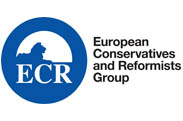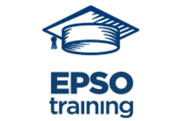How to pass the EPSO Computer Based Test?
10 ways to pass the EPSO CBT and become an EU functionarie
1. Learn from the mistakes of others
Rather than going through everything on your own try to learn from the experiences of others. A friend who did the competition before, a coach or taking a course can help you better understand what the competition is about and what mistakes to avoid.
2. Learn to distinguish between absolute and relative statements in verbal
The statement “Some services are exceptional” is not the same as saying that “Services are exceptional “. The first statement is relative the second is absolute. Learn to distinguish between these as this is often a way the texts in verbal are structured. Beside these learn to distinguish the low, medium and high frequency adverbs – e.g. rarely – habitually – always. Answers will often be a combination of these.
3. Refresh basics in numerical
Make sure you master percentages, rule of 3, simple and weighted averages. Also get a good grip on mathematical logic and understand how to translate an everyday question into a calculation.
4. Master the pocket calculator in numerical
You will be given a small calculator to use at the numerical exercises. Learn all the shortcuts on how to e.g. increase or decrease a percentage from a number, how to use the memory or the % functions. This can save you precious seconds and allow you to have a good result.
5. Trust your instinct – in abstract
There are certain patterns one can try to follow in order to discover the answer. We teach that in class through our Trainday courses. However there is still one more thing that you can do when facing abstract questions – trust your instinct. If after looking at an abstract question you feel that one answer is the correct one, chose it and often times you will notice that it is correct. It is not an exact science but our subconscious gets patterns faster than our conscious self.
6. Learn about the EU values for Situational Judgment Test
Non-discrimination and equal treatment, lawfulness or proportionality and consistency are some principles valued by staff of the European Commission. Try to show these through your answers in SJT. Don’t fall into the trap of thinking like in a private organization that e.g. profit is an aim. Rarely this is a good answer in SJT.
7. Learn to focus for Accuracy and Precision (for AST competitions)
A question every 6 seconds is not a lot. Learn through practice to spot an error at a glance.
8. Practice, practice, practice
We recommend practicing for 1-2 hours per day for 8-10 weeks.
9. Find your strong and weak areas and work on them.
Discover through tests or with a coach what are your strong and weak areas and try to better understand why your score is not so high in particular field. Reflect how you can improve it and devote some of the time of study to that area.
10. Go to other competitions
Even if you are not targeting an e.g. assistant competition but an administrator one it can still be helpful to go through the experience of the exam. You will find that many of the tests are similar and this is valuable experience for when you plan to go the test you are most interested in.











